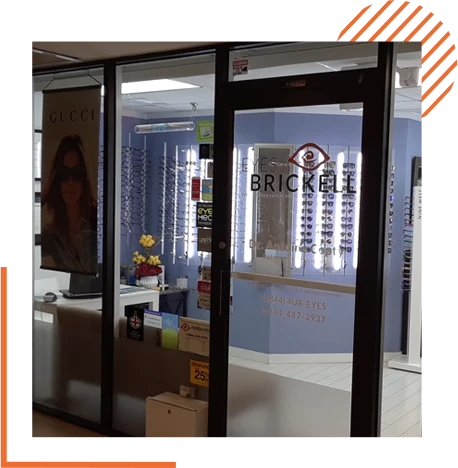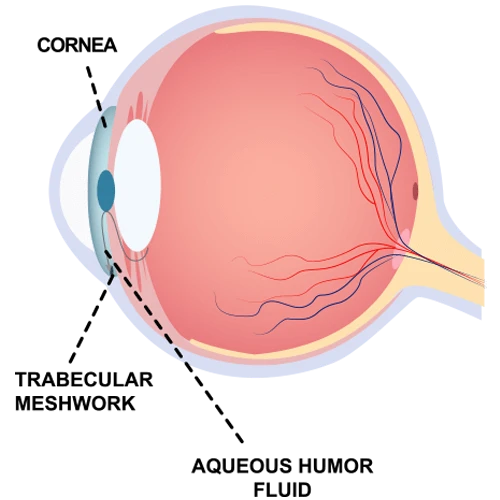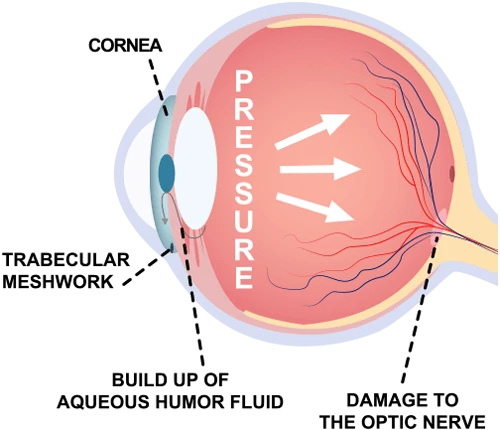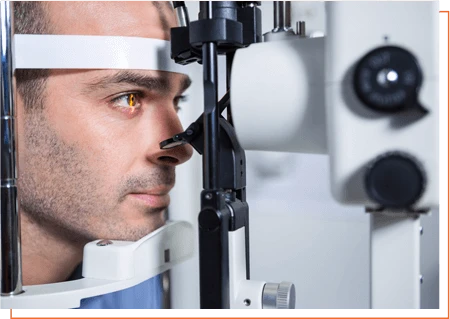Glaucoma

At Eye on Brickell, our team of highly skilled doctors, led by the renowned Dr. Antoine Copty, are committed to providing comprehensive care for all eye conditions, including glaucoma. Glaucoma is a serious eye disease that can lead to permanent vision loss if left untreated.
Our team utilizes state-of-the-art technology to diagnose and manage glaucoma, including visual field machines, retinal cameras, and optical coherence tomography machines. An OCT is the gold standard in evaluating the retina. It uses a low-powered laser to create pictures of the layers of your retina and optic nerve. The cross-sectional images are three-dimensional, color-coded, and can give the doctor invaluable information on your optic nerve and nerve fiber layer. Retinal cameras provide a 2D global image of your retina and optic nerve. At Eyes on Brickell, we believe in combining the use of multiple detections for conducting glaucoma eye exam in Miami. It is essential to preserve vision and quality of life for our patients.
What is Glaucoma?
Normal Eye

Glaucoma

There are several types of glaucoma but the two most common are:
- Open-Angle Glaucoma
- Angle-Closure Glaucoma
Open-angle glaucoma is the most common form and occurs gradually over time, often without symptoms until vision loss has occurred.
Angle-closure glaucoma, on the other hand, is less common but can develop rapidly and is usually associated with sudden symptoms like eye pain, headaches, and vision problems.
In both types, the damage to the optic nerve can cause permanent vision loss or blindness if left untreated. Unfortunately, the damage caused by glaucoma cannot be reversed, so early detection and treatment are essential for preserving vision.
Glaucoma Exam and Procedure
Glaucoma exams are a series of tests performed to diagnose and monitor the condition. The tests evaluate the intraocular pressure, optic nerve health, and visual field.
During a glaucoma eye exam, an optom or ophthalmologist will first measure the intraocular pressure using a tonometer. This test involves numbing the eye with eye drops and then gently pressing a small device against the cornea to measure the pressure inside the eye.
Next, one of the best glaucoma doctors will examine the optic nerve, which connects the eye to the brain. They may use a special magnifying lens and a bright light to evaluate the color, shape, and size of the optic nerve. They may also take photographs or use imaging technology to get a closer look at the optic nerve.

Finally, the glaucoma eye specialist will test the patient’s visual field, which measures the range and sensitivity of their peripheral vision. This test is usually performed using a specialized machine called a perimeter. The patient sits in front of the machine and responds to visual stimuli presented at different points in their field of vision.
Finally, the doctor will test the patient’s visual field, which measures the range and sensitivity of their peripheral vision. This test is usually performed using a specialized machine called a perimeter. The patient sits in front of the machine and responds to visual stimuli presented at different points in their field of vision.
What are the Benefits?
Moreover, the tests can also help to rule out other eye conditions, such as cataracts or macular degeneration, which may have similar symptoms to glaucoma.
Additionally, regular exams may help to identify the risk factors such as family history, high eye pressure, and certain medical conditions. This information can help the patient and doctor take steps to prevent or manage the condition before it progresses.
What are the Symptoms?
In the early stages, it may not produce any noticeable symptoms. As the condition progresses, however, the following symptoms may occur:
- Loss of peripheral vision
- Tunnel vision
- Blurred vision
- Halos around lights
- Eye pain
- Headaches
- Nausea and vomiting
If you experience any of these symptoms, it is essential to see an eye doctor promptly, as early detection and treatment can help to preserve vision.
When would a Glaucoma Exam be Needed?
What's the Treatment for Glaucoma?
Eye drops are the most common first-line treatment for it. These medications work by either decreasing the production of fluid in the eye or increasing its drainage. In some cases, oral medications may also be prescribed.
If eye drops and oral medications are ineffective, surgery may be necessary to lower intraocular pressure. One common surgical procedure is trabeculectomy, which involves creating a new drainage channel in the eye to relieve pressure.
Laser therapy may also be used for treatment. This type of treatment includes selective laser trabeculoplasty (SLT) or laser peripheral iridotomy (LPI)



